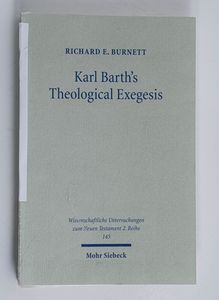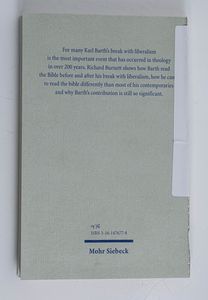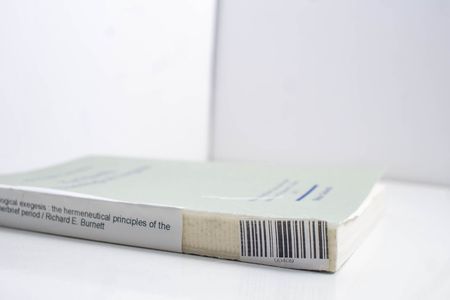
Karl Barth s Theological Exegesis: The Hermeneutical Principles of the Römerbrief Period
Netto: 29.91 €32€
inkl. MwSt. zzgl. Versand
Bearbeitungszeit: 3 Werktage
Sofort lieferbar (auf Lager)
1x Stück verfügbar
Artikelzustand Mangelware (nachgebunden):
- Stark gebrauchter Zustand / Mangelware
- Buchrücken fehlt und wurde maschinell nachgebunden
- Seiten können fehlen, weil die Prüfung aller Seiten zu zeitaufwendig ist
- Coverseiten können vom Text abgeschnitten sein
- Vereinzelte Seiten können lose sein
- Blattübergänge können Unterschiede aufweisen
- Es handelt sich um Jahrzehnte alte Bücher, die nicht für Allergiker oder anspruchsvolle Kunden geeignet sind
Buchzusammenfassung:
For many scholars of theology, Karl Barths break with liberalism is the most important event that has occurred in theology in over 200 years. Richard Burnett shows that an important part of Barths break was his attempt to overcome the hermeneutical tradition of Schleiermacher. This is reflected throughout Barths Romerbrief period and especially in his attempt to engage in theological exegesis.The hermeneutical tradition of Schleiermacher begins with Herder and extends through Dilthey, Troeltsch, Wobbermin, Wernle and Barth himself prior to 1915. It exercised great influence throughout the twentieth century and is characterized by its attempt to integrate broad aspects of interpretation, to establish universally valid rules of interpretation on the basis of a general anthropology, and its reliance upon empathy (Einfuhlung).Barths discovery that the being of God is the hermeneutical problem (Jungel) implied that the object to be known should determine the way taken in knowing. This caused the rise of a hermeneutical revolution which gave priority to content over method, to actual exegesis over hermeneutical theory. Barth did have hermeneutical principles which he thought might apply generally, however. These are apparent in his Romerbrief period and specifically in his attempt to approach the Bible more according to its subject matter, content, and substance, entering with more attention and love into the meaning of the Bible itself.Richard Burnett focuses on these principles, which have never been discussed at length, nor specifically in relationship to Schleiermacher, and presents a study which challenges both neo-orthodox and post-modern readings of Karl Barth.





